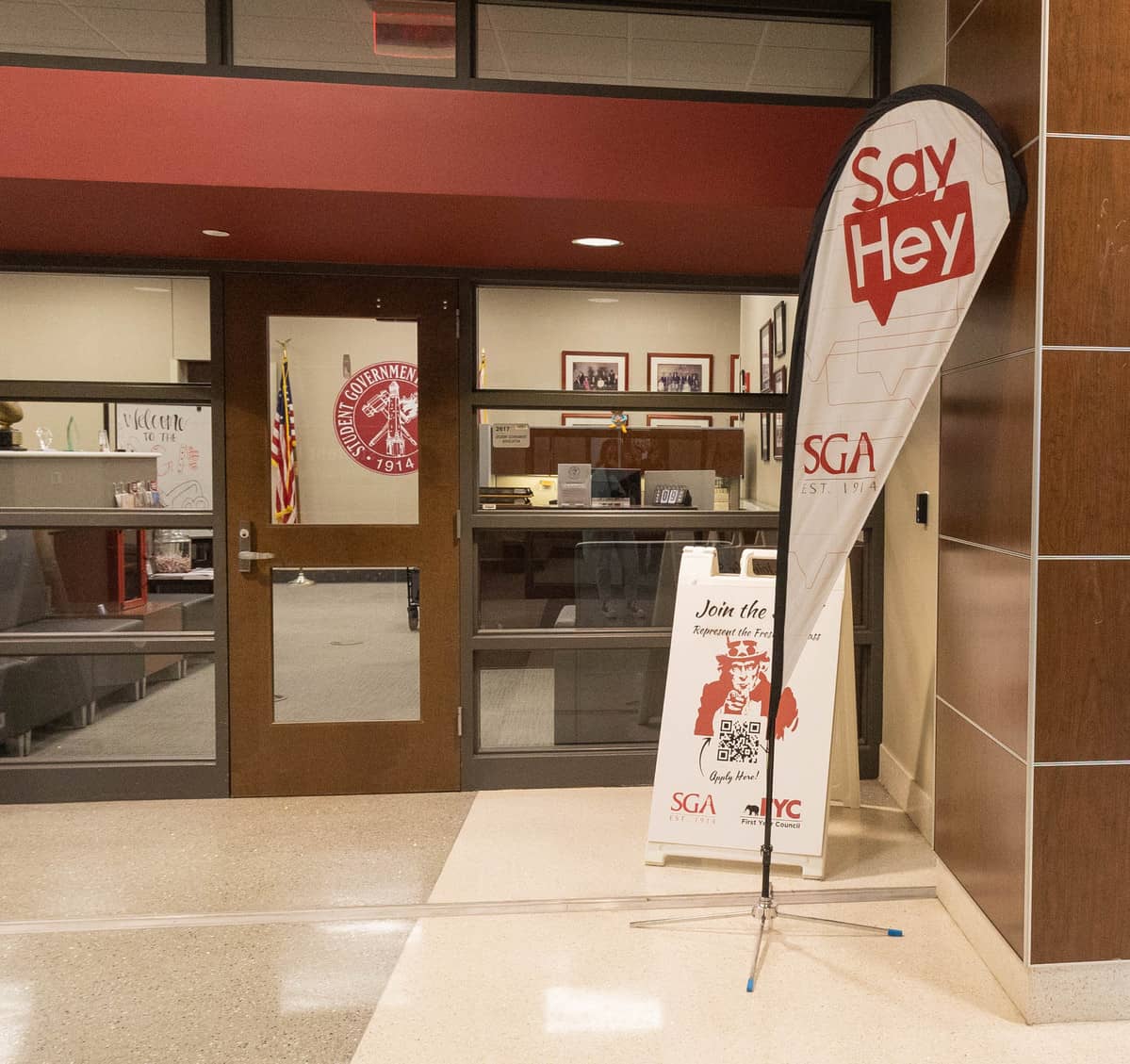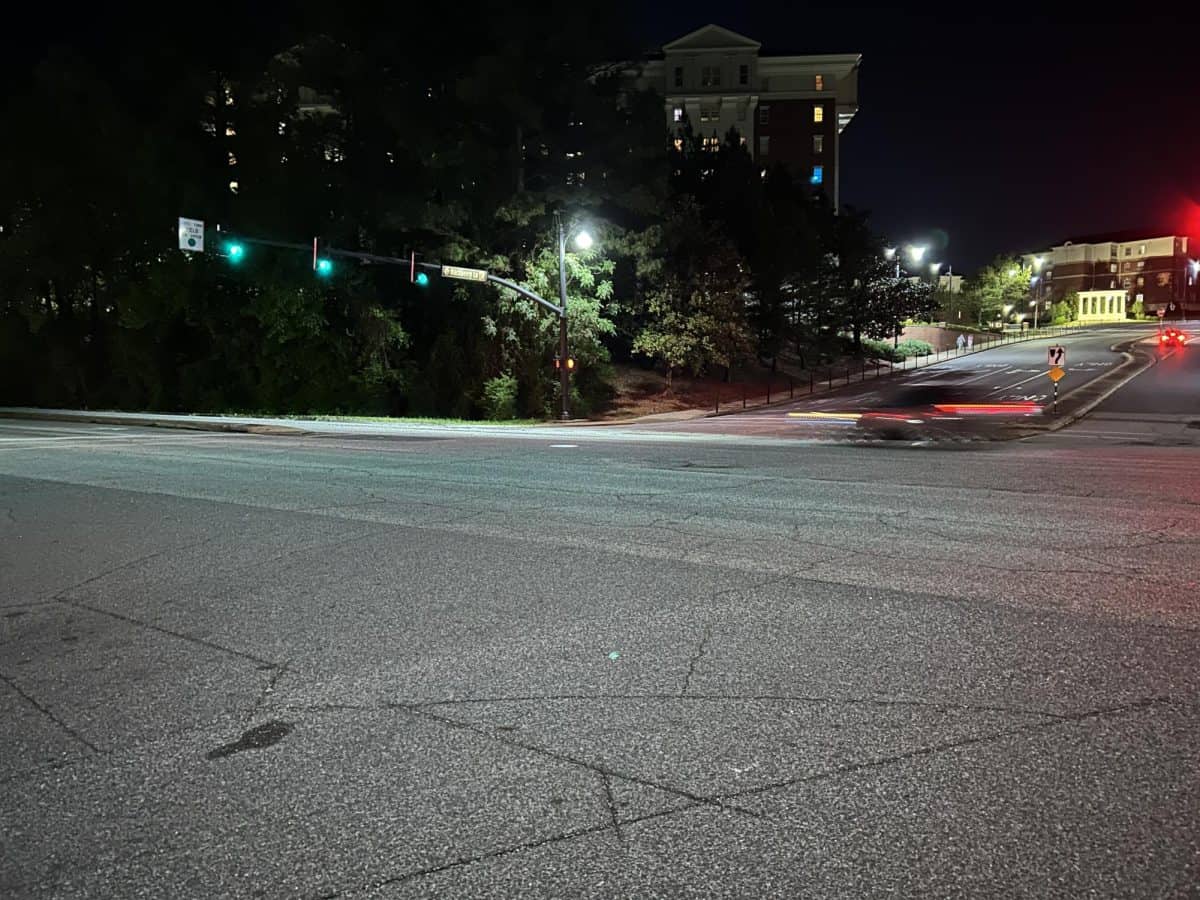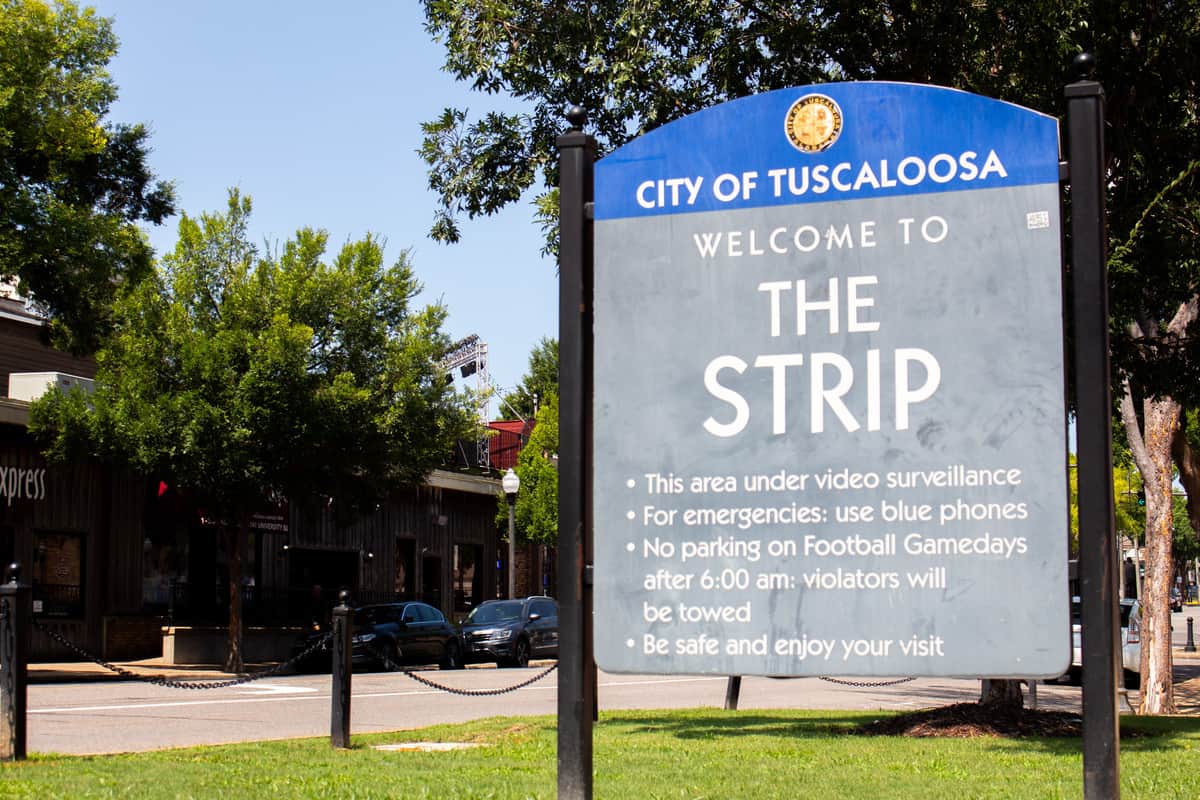A widely known free speech and anti-abortion advocate will be speaking at the Bama Students for Life meeting Wednesday night, as part of the group’s response to the removal of their anti-abortion poster from a display case in the Ferguson Center.
The Rev. Patrick Mahoney, a Christian social and political activist, will spend Wednesday and Thursday in Tuscaloosa and will take part in public events, including a speech at BSFL’s Wednesday night meeting.
Joanna Robinson, treasurer for BSFL, said the group had reserved the display case from Jan. 8 through Feb. 7, but the poster had been removed when group members checked on Feb. 6, a day before the reservation expired. Robinson also said that no Ferguson Center staff had screened the poster before the group put it up.
“Our display provided factual information about the harms abortion causes to women and developing pre-born human beings,” Claire Chretien, the president of BSFL, said. “The display roughly coincided with the anniversary with Roe v. Wade.”
On Tuesday, BSFL sent a letter to the director of the Ferguson Center, Carl Bacon, requesting that their poster be returned to the display case and an apology be issued to the student organization. The letter asks for a response to be issued by Monday.
While neither the Ferguson Center staff nor The University of Alabama has directly responded to the requests issued in the letter, UA Director of Media Relations Cathy Andreen said the University is currently reviewing its policies.
“The University of Alabama respects our students’ First Amendment rights to express their opinions,” Andreen said. “As a result of this incident, we are reviewing our guidelines for the display boards in the student center.”
After the display was taken down last week, Chretien videotaped a conversation she had with Donna Lake, an event coordinator at the Ferguson Center.
In the video, which Andreen said Lake did not know was being recorded, Chretien and Lake can be heard discussing the removal of the display. Lake said the poster had been removed after Ferguson Center staff had received complaints from students about images on the display, including pictures of aborted fetuses and the body of a mother who had died during an abortion procedure.
Lake told Chretien that the guidelines for use of the display cases could be found online and included restrictions against offensive or graphic material. However, the policy that can be found on the Ferguson Center website lists no such requirement and does not mention “offensive” or “graphic” material.
Additionally, BSFL’s letter cited other displays in the Ferguson Center with questionable content that had not been removed in the past.
“The Ferguson Center permits all kinds of speech by other students and student groups that many people would find ‘offensive’ or ‘graphic,’” the letter read. “For example, on one bulletin board is an ad for the UA Theatre & Dance program’s presentation of ‘Blood Wedding.’ The poster states that the event is ‘For Mature Audiences’ and features blood stained glass superimposed on a picture of a bride and groom. A few months ago the Ferguson Center Art Gallery displayed student artwork and one painting showed male full frontal nudity.
“Other student groups are also permitted to display information about women’s health, safety issues, and the consequences of sex. All of these problems were addressed in our pro-life display that provided facts and information on the harm caused by abortion—both to the infant who is killed and to the mother.”
The video and the story have received attention from various local, state and national outlets. Chretien said she had been interviewed by various conservative and mainstream news outlets including an interview with “Fox and Friends” on Saturday, Feb. 15.
“Last week, I was just not sleeping with all the stuff that was going on,” Chretien said.
The group has also retained legal counsel from the Alliance Defending Freedom, a faith-based legal and advocacy group based out of Phoenix. Matt Sharp, an ADF lawyer from the organization’s Atlanta office, is working with Bama Students for Life to discuss legal options if the University does not satisfy the requests in the letter.
“Our hope is, of course, that The University of Alabama will do the right thing and allow Bama Students for Life to have their display up again and then take some steps to make sure this doesn’t happen again,” Sharp said. “That’s what we’re hoping will happen, and then you know, if Alabama refuses to do that, refuses to treat Bama Students for Life the same as any other group, then we’ll go from there and decide what next steps to take.”
The University has received criticism in the past for what some have called restrictions against students’ right to free speech. Recently, the University was included on the Foundation for Individual Rights in Education’s list of “The 10 Worst Colleges for Free Speech.”
(See also “UA rated among worst for free speech“)
That designation was in part due to the restrictions to assembling and protesting on campus as part of the UA grounds use policy.
The policy requires groups to apply for a permit if they wish to assemble for a protest or host an event on any area of the campus. The University does not have any free speech zones on campus where students can assemble without having to apply for permits, Andreen said.
“Rather than ‘free speech zones,’ UA’s decisions regarding requests to use our grounds and facilities are based on reasonable time, place and manner considerations,” Andreen said. “The grounds use permit process is one of the tools UA uses to gather information prior to a proposed event so that UA can make appropriate decisions regarding the reasonable time, place and manner considerations applicable to the proposed event.”
Andreen said the grounds use policy is used to prevent disruption to the daily operations of the University and the education and safety of students.
“The University regularly reviews the grounds use policy to be sure that it continues to meet our needs,” Andreen said.
(See also “What’s the use? After updates, grounds use permit poses procedural complications“)
Sharp said he does not think the policy regarding display case use had any concerning restrictions, but the problems arose in staff members’ misunderstanding about the policy with regards to content.
“The only restrictions I saw in there is that it can be something that’s flammable, you know, more of a real safety issue, something that’s going to harm the building,” Sharp said. “So there were no restrictions on the type of content anywhere in there, but our concern is when you’ve got obviously a University official that thinks, according to her statements, that the policy prohibits offensive speech. In my view, I think it would be wise for the University to take steps to put something in there specifically directing its staff that they will not discriminate based upon the content or the viewpoint of the message in the display.”
Chretien said that Mahoney will be coming down from Washington, D.C. on Wednesday to assist the group in their requests for the University to address the issue.
Mahoney, the campus advisor for Students for Life of America, is an anti-abortion activist who has traveled around the world advocating for ending abortion and was arrested twice in Beijing during the 2008 Olympics for protesting the right to public displays of religion.
Mahoney will speak at the Wednesday night meeting in 107 ten Hoor at 7 p.m.
(See also “Our View: Bama Students for Life should examine the language they use“)






